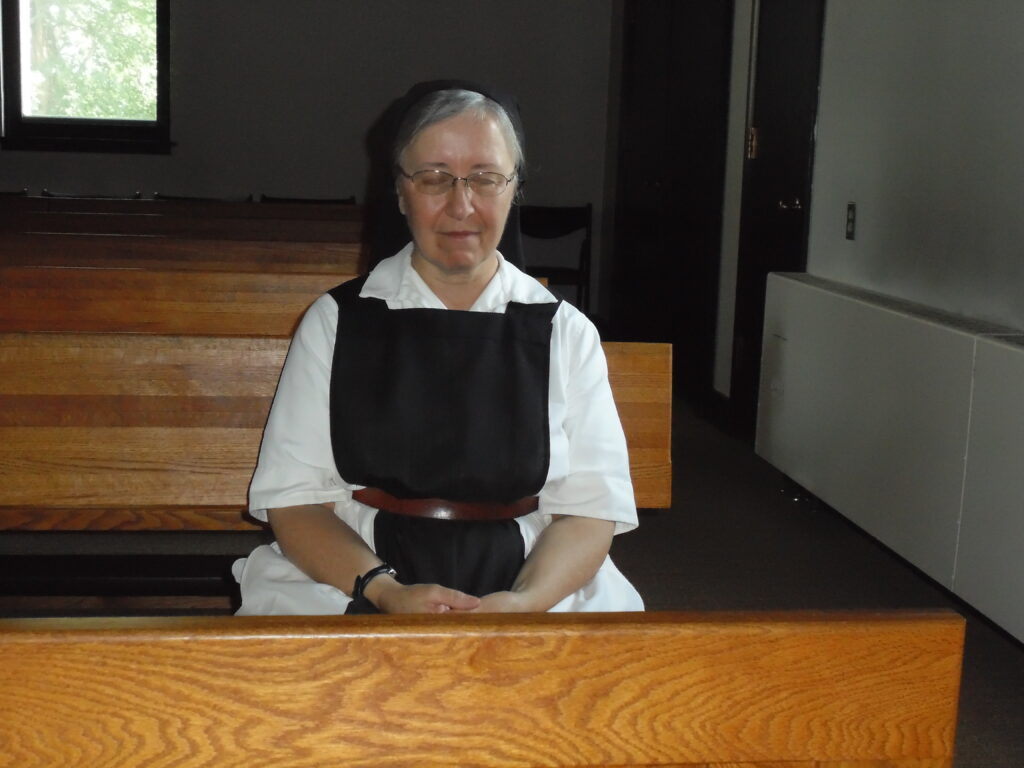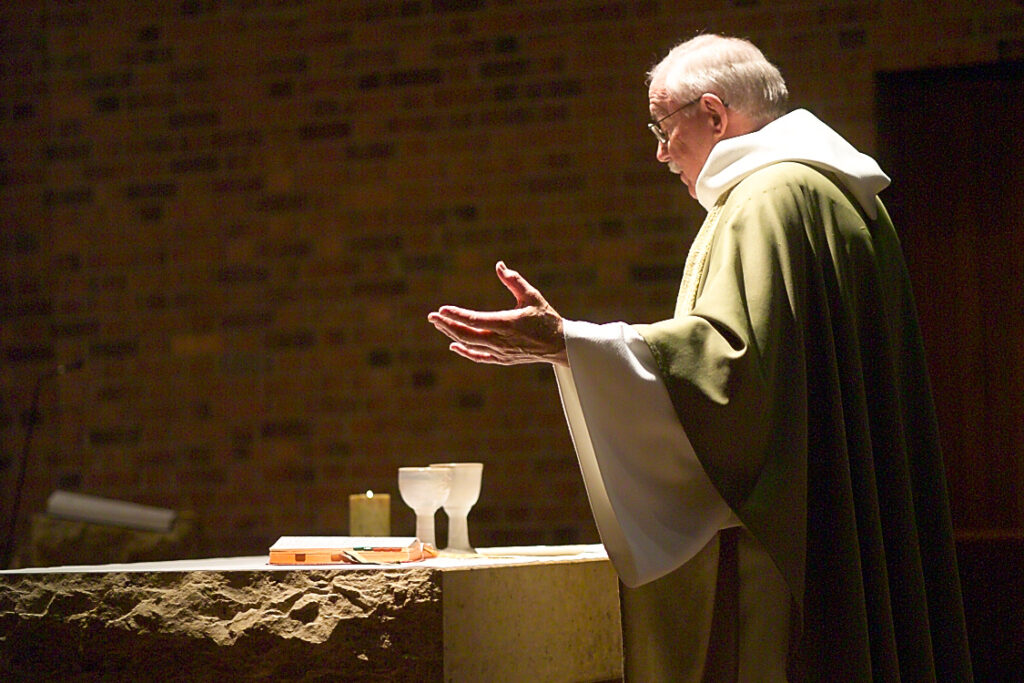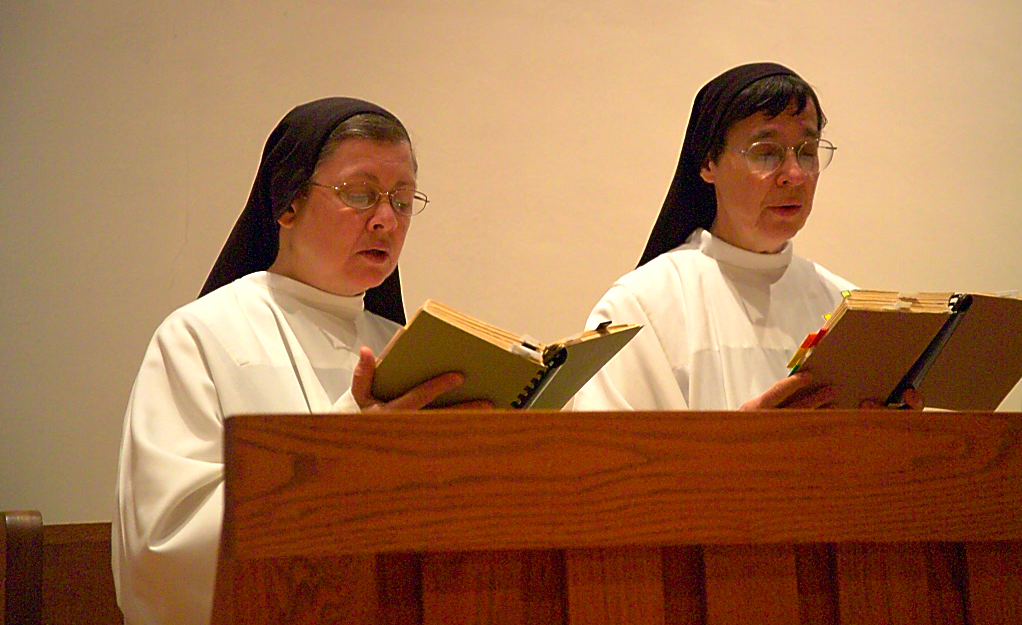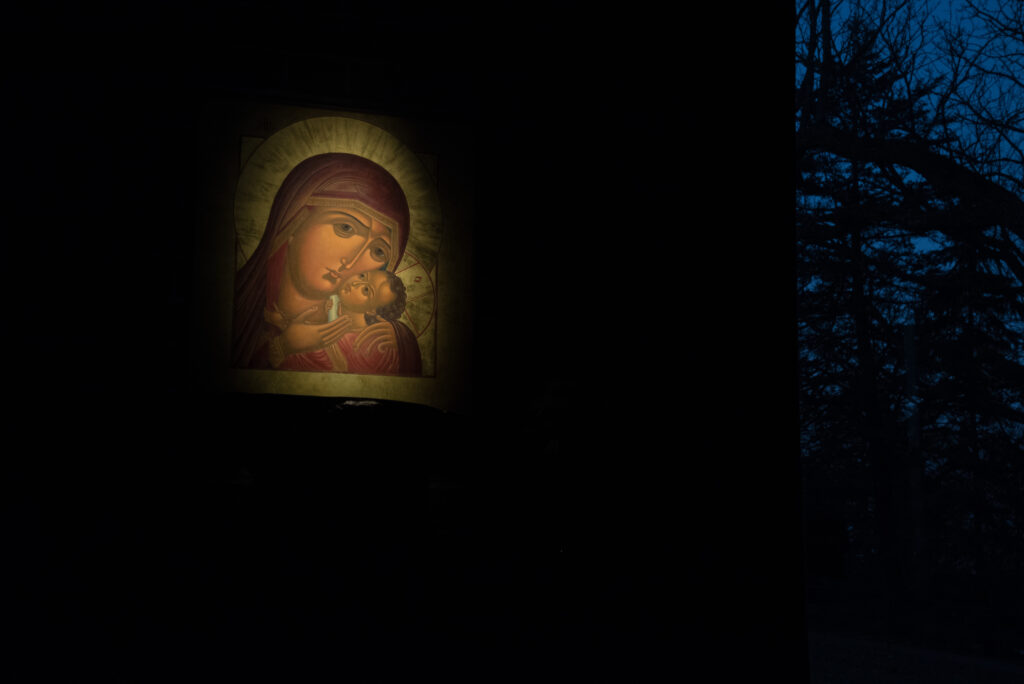Prayer

Prayer is at the heart of monastic life. To the extent that we love God, or simply want to love God, we want to pray, to be in relationship with God.
Those of us who are followers of Jesus Christ want, specifically, to be in relationship with Jesus, to learn from him, to spend time in his company, to be intimate with the one who is nearer to us than our own hearts. This is what drives the nun to spend such a large part of every day in prayer.
Jesus to me is honey in the mouth, music in the ear, a song in the heart.
St Bernard of Clairvaux, 12th Century Cistercian
If we lack experience at prayer, monasticism has a wonderful cure: pray lots! Our whole life revolves around prayer: communal prayer, personal prayer, prayer in church, prayer outside church. Even after years of prayer, we may struggle with distractions; but we become, as it were, habituated to prayer. Our day is structured so that at least the problem of finding time for prayer is solved: it is built into the schedule, and it is a communal, not merely personal priority. Whether vibrant or dry, prayer becomes a necessity and a habit.
It is not possible to speak of Christian prayer without speaking of love. It is love for Jesus that keeps us going, and the measure of our prayer is our desire. This love helps us take to heart the needs and sorrows of the world, the difficult situations in our own lives and in our families, and the many prayer requests we receive, to beg God’s help but also to praise and give thanks.
Eucharist
So great was Jesus’ affection for his disciples, and so high his esteem for material reality, that he left us the gift of the Eucharist, the Christian ritual in which bread and wine become his body and blood, and we receive him in a way both physical and spiritual.

The memorial of his passion is renewed,
Our soul is filled with grace,
And we receive a pledge of the glory to come.
St. Thomas Aquinas, antiphon for Corpus Christi
For early Christians Eucharist was a weekly event, but over the centuries in Western Christendom it became a daily rite, and so it remains for us: the central focus of the day, the communion with God, with each other, with all people, that goes beyond words.
Our Constitutions say it perfectly: “The Eucharist is the source and summit of the whole Christian life and of the sisters’ communion in Christ. For this reason it is to be celebrated by the whole community every day. It is by sharing in the paschal mystery of the Lord that the sisters are united more closely with one another and with the whole Church.” (Constitutions of the OCSO, 18)
Liturgy of the Hours
Also known as the Divine Office, or the Work of God (Opus Dei), the Liturgy of the Hours brings us back communally to God and to prayer repeatedly during the day. When the bell rings we lay aside whatever we are doing and come together to sing God’s praises. All of the Offices include a hymn, the chanting of psalms, and a reading from Scripture, and are meant to sanctify the different times of the day. Like the Mass, they also include antiphons (short chants that frame the psalms) and prayers. One of the greatest joys of monastic life is that we are thoroughly saturated with these psalms, hymns, antiphons, and prayers, to the extent that they come to mind naturally as we go about our day, weaving in praise and prayer.

Let nothing be preferred to the Work of God.
RB, Chapter 43, Times at Church and Table
The main anchors of the Office are morning prayer (Lauds) and evening prayer (Vespers), each about ½ hour long. In between are the three “Little Hours” of Terce, Sext, and None, lasting about 10 minutes each.
The longest Office is Vigils, prayed during the final hours of the night. Vigils begins only 15 minutes after we rise, so that our minds are engrossed in a long stretch of prayer just as they are awakening. We pray the whole psalter through every two weeks, and the bulk of those psalms are savored during the night office, along with a long reading from Scripture, and a second non-scriptural reading.
At the other end of the day is Compline, lasting about 15 minutes. While the elements of all the other offices change with the seasons, Compline stands outside the liturgical calendar. It is mostly identical night after night, and we sing it by heart. It reminds us that, beyond the linear progression of salvation history which all the rest of the liturgy celebrates, stands the unchanging eternity of God. The extreme repetitiveness of Compline tends not to dullness, but to a dependable comfort and a peaceful release of the workings of the day into the hands of God. Each evening ends with the singing of the Salve Regina, an ancient chant in praise of Our Lady.
Then comes the Great Silence, as we close our lips on speech and song until Vigils begins the new day with “O Lord, open my lips, and my mouth shall declare your praise.”



